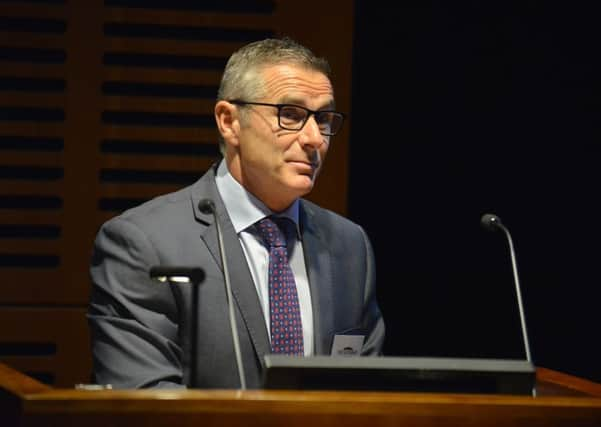Martin Green: Talking is healthy


The 1,250 community pharmacies in Scotland are typically found on our high streets, in the hearts of our communities. They dispense around 100 million prescriptions annually and deliver the Minor Ailments Service and a raft of public health responsibilities.
Our community pharmacists have a huge range of tasks. Our real specialism is generalism; advising on the suitability of over-the-counter medicines through to a range of very complex medicines.
Advertisement
Hide AdAdvertisement
Hide AdWe deal with paediatrics to pensioners and everything in between.
We have to learn a very wide range of skills: buying medicines, which can be a nightmare; picking up enormous clinical expertise; working effectively with fellow healthcare professionals; and being good communicators.
Irene Oldfather’s point at the conference was well-made; community pharmacists can be the catalyst to better conversations with patients across the primary healthcare spectrum.
Communicating with patients is an important part of training for pharmacists because community pharmacies are hugely accessible and a good place to start conversations.
We have to be good at communication because we see an awful lot of patients. There is a lot of talk about which primary care professionals see the most patients, but I can put that one to bed; it’s us, the community pharmacists.
Largely, the patients who come to see us are not acutely unwell; they are kept well by their medication. We have unique access to those patients and a unique opportunity to keep them well.
There is a clear appetite to enhance our role. With the frequent patient contact we have, we can empower those patients to manage their conditions more effectively.
We have an integral part to play in the transformation of primary care and part of that is building better partnerships with fellow healthcare professionals.
Advertisement
Hide AdAdvertisement
Hide AdThe problem here is that as a profession, we do not feel like a full and equal partner and that is largely down to the lack of access to patient records.
I think most patients think we have access to their records when they come to see us and I’m confident the vast majority would have no problem with us seeing that information.
Our profession understands the issues around consent, security and the quality of the patient information and how it is updated, but these are hurdles that can be overcome – and if we can do that, we will make better decisions.
We do our very best now, but we are hamstrung by our lack of access to important information.
With better information, there are important roles we could perform.
We feel we are best-placed to deal with patients when they are discharged from hospital, but we have no routine access to discharge information.
Community pharmacists do not seek this information for its own sake. It is simply part of doing a better job – making sure our contribution is effective for patients and helps to relieve pressure on our GP colleagues.
We know we can do more – and do it better. The Chronic Medicines Service has not achieved as much as we would have liked so far, but it is the right thing to do and we need to look at why we haven’t got more patients on to serial prescriptions.
Advertisement
Hide AdAdvertisement
Hide AdThere will be an additional increase in workload but in the longer term, it reduces the repeat prescribing workload.
There is also room for improvement with the Minor Ailments Service. We want to pilot it nationally to make sure that the service is not widely different across health boards.
There are discussions about effective remuneration but the evolution of MAS will have a definite effect on the pressures elsewhere in the NHS.
On public health, I welcome what Andrew Buist of the BMA said at the conference about more vaccinations being done in community pharmacies.
We have been on the fringes of vaccination for too long; now there appears to be a will to do more, so I am sure we can find a way.
That mantra “Where there’s a will, there’s a way” applies across the whole transformation of primary care. As a profession, community pharmacists are ready and willing to be part of the innovative, modern delivery of primary healthcare services.
There is work to do; we know we need to work more closely with other professionals and we do want to be treated as a full and equal partner.
Also, we have to ensure patients see their local community pharmacy as their first port of call.
Advertisement
Hide AdAdvertisement
Hide AdWe can make these things happen – because there is a real, and growing, momentum for change. So let’s work together to make it happen – and see patients benefit tremendously.
Martin Green is chairman of Community Pharmacy Scotland.